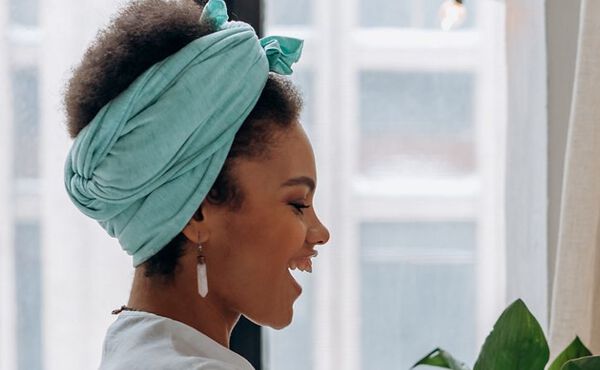Have you unlocked the power of active listening? Improve your relationships and build deeper connections with these expert tips to become a better listener today.
When it comes to successfully building and maintaining deep, meaningful relationships, there’s one skill that’s often overlooked, or at the very least, underestimated. That skill is listening.
Whether it’s in our personal relationships or our professional ones, the ability to truly listen and understand what another person is saying can make a huge difference in how we connect, interact and empathise with each other.
Being a good listener doesn’t just mean being quiet and nodding along; it’s an active practice with the power to significantly improve how we navigate conversations and connections with everyone from our family and friends, to our partners or colleagues.
So, if you’re ready to unlock the power of active, mindful listening, keep scrolling to discover why it’s so vitally important, plus expert tips to help you improve your listening skills right away.
WHY IS LISTENING SO IMPORTANT?
Of course, listening in its most basic sense is an essential part of our day-to-day life. Listening to music while travelling to work, listening out for the barista to call our coffee order, tuning in and out of the news, or a tedious work meeting. But have you considered the difference between simply hearing what another person has said, and truly listening?
While one is a passive interaction, the latter requires deep concentration, active engagement and mindfulness. It also involves paying attention to a lot more than just the words; experts generally agree that tone, body language and facial expressions all play a huge part in how we communicate what we really mean.
Being a good listener can help build relationships, gain trust, and deepen understanding between people.
“From my experience, the power of listening lies in its ability to develop empathy and understanding,” explains Bayu Prihandito, a certified psychology expert, life coach and the founder of Life Architekture.
“When we truly listen, we give the other person a deep sense of value and validation, communicating that their thoughts and feelings matter to us. I believe it's fundamental for building trust and strong relationships.”
Dr. Craig Kain, a psychologist and psychotherapist with over 30 years of private practice, agrees. “Good listening is a crucial element of relationship building and maintenance, because the dynamics of our most intimate human relationships can be distilled to three things: we want to feel safe, we want to feel understood, and we want to feel important,” he explains.
“Being understood is most important, as our ability to feel important and safe rests on it. Listening is the key to understanding.”
So, with the benefits of becoming a better listener in mind, let’s take a look at the expert tips that can help us put this all into practice.

6 EXPERT TIPS FOR BETTER LISTENING
-
Be present
“It's crucial to be as present as possible in a conversation,” says Prihandito. “This means leaving distractions or personal concerns behind, muting your phone, and instead focusing solely on the speaker. With attentive mindfulness, we can grasp the full essence of our communication, both verbally and non-verbally.”
-
Actively engage
Listening isn’t a passive act, and we all want to feel like we’re being heard. “To acknowledge your presence, engagement and interest, you can nod, maintain eye contact, or use verbal affirmations,” notes Prihandito. “Rephrasing or repeating what the speaker has said (reflective responses) is another great way to show that you're actively listening, processing their thoughts, and validating their feelings.”
-
But try not to interrupt
Though it sounds like fairly obvious advice, Kain notes that in reality, many of us find this more difficult than we realise. It’s not just about speaking in the middle of someone’s story; spacing out, shifting attention to your phone, or even getting distracted by what you’re going to say next, all counts as an interruption. He suggests taking on a reflective task: “an exercise to improve our ability to listen is to simply spend a day or two paying attention to how often we interrupt, when someone else is speaking to us.”
-
More than words
“One way to improve listening skills is to do what therapists do, and listen for feelings, not merely content,” says Kain. “While therapists are certainly listening to the words someone is saying, we're also listening to the emotions being expressed, along with other ways people convey information, such as body language. Letting someone know you can see how tightly their jaw is clenched, or how relaxed they seem, can also be a way to let someone know you're listening to them.”
-
Consider the ‘why’
“Another thing therapists do when listening to a client is ask themselves: ‘why am I being told this?’” says Kain. “Often, buried in what someone is saying to us, is a desire expressed indirectly. Another form of listening is hearing these hidden desires and addressing them if possible. For example, if our spouse tells us they are feeling exhausted by the kids, we can respond by giving them a break. We can arrange for a sitter and plan a date night. Similarly, if a friend tells us how isolated they've been feeling, we can offer to take them out for coffee.”
-
Bring an open mind
For Prihandito, one of the most vital principles of listening is about bringing a non-judgmental attitude. “It's best to hold back from immediate reactions and instead, try to understand the speaker's perspective, feelings, and opinions,” he explains. “Put yourself in their shoes first, before reacting to what is being shared.”
-
View full details$15.00









